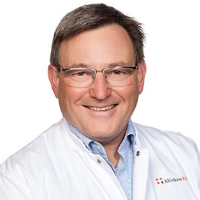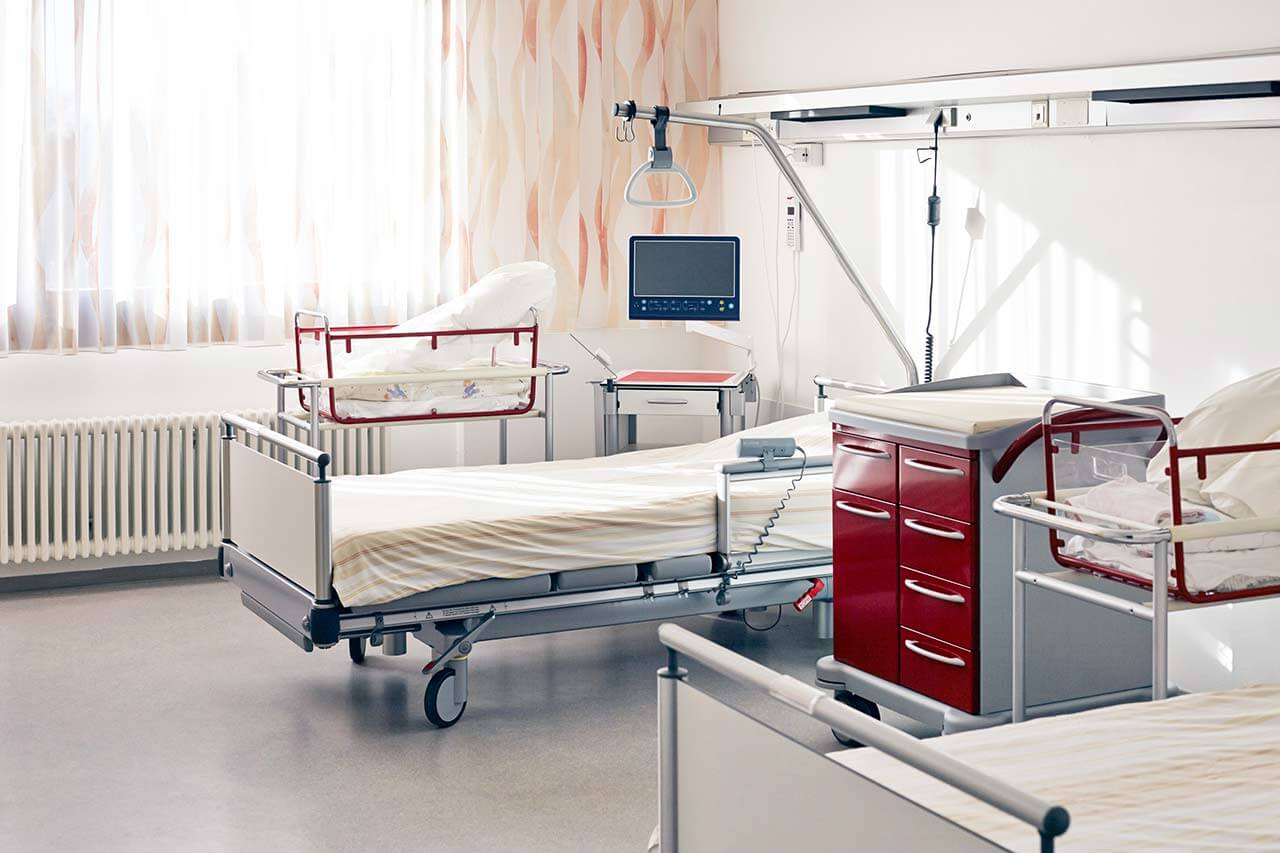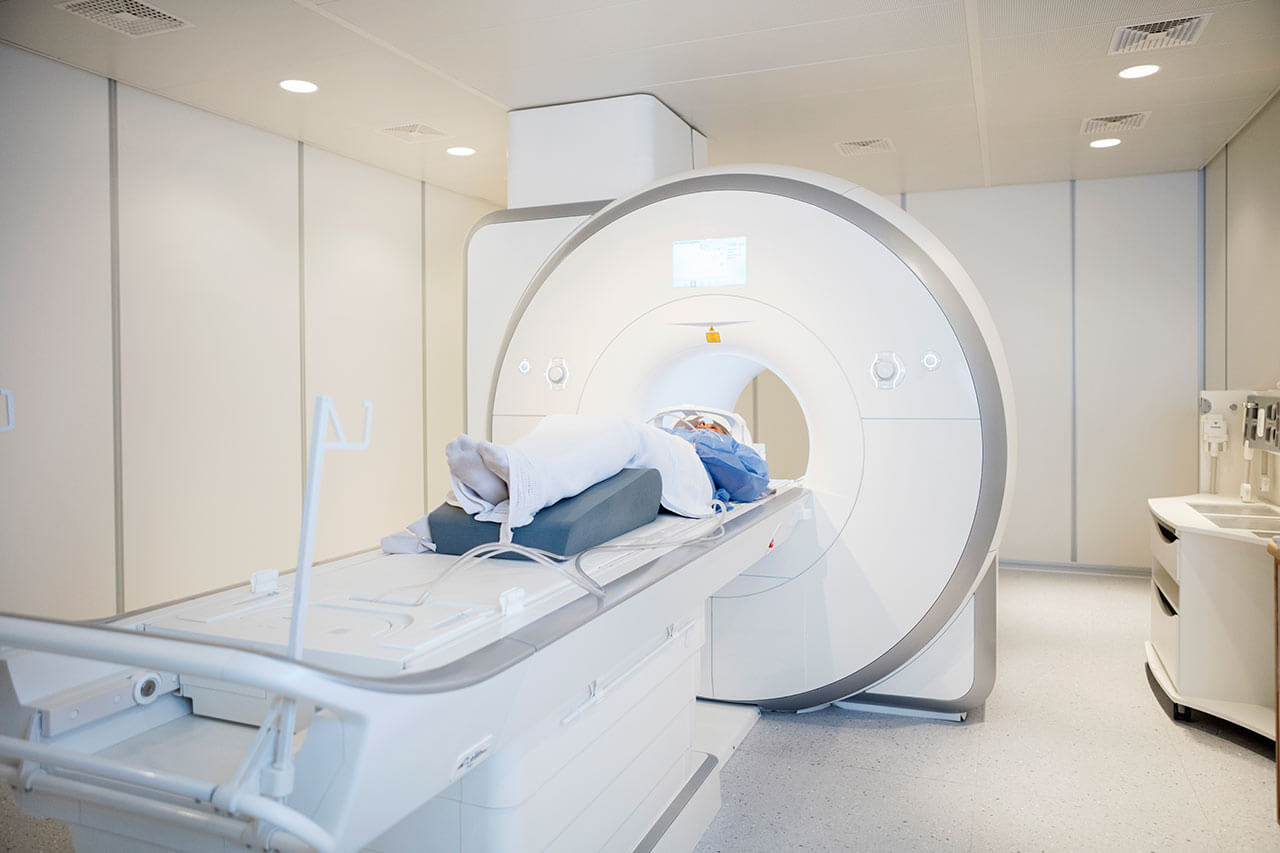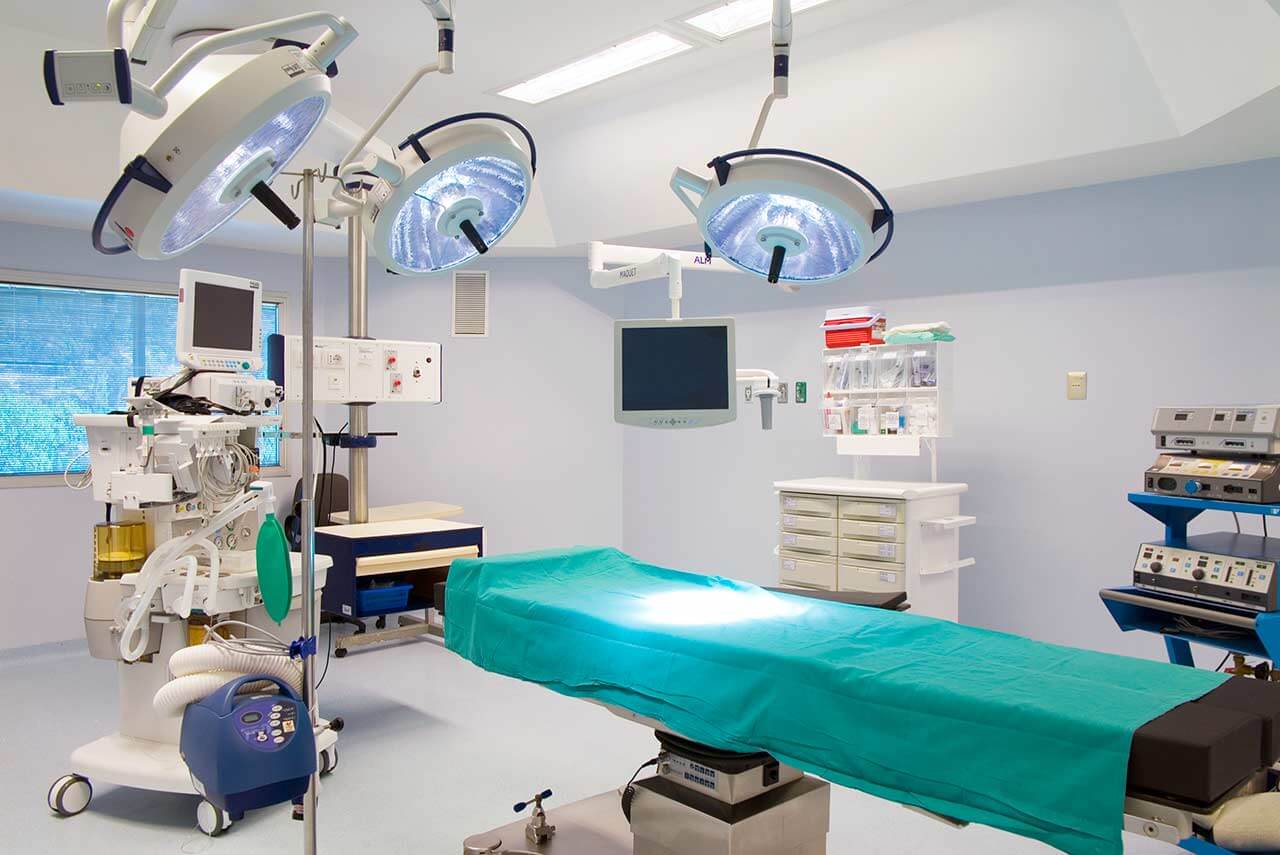
The program includes:
- Initial presentation in the clinic
- clinical history taking
- review of medical records
- physical examination
- laboratory tests:
- complete blood count
- biochemical blood analysis
- inflammation indicators
- general otolaryngological examination
- tympanometry
- audiometry
- nursing services
- consultation of all leading experts
- development of individual treatment plan
Required documents
- Medical records (if availale)
Service
You may also book:
 BookingHealth Price from:
BookingHealth Price from:
About the department
The Department of Adult and Pediatric Otolaryngology, Head and Neck Surgery at the Hospital Cologne-Holweide provides the full range of medical services in the areas of its competence. The department specializes in comprehensive diagnostics of ENT pathologies and conservative and surgical treatment of nasal, paranasal sinus, pharyngeal, laryngeal, and ear diseases. Patients of all age groups, including children and adolescents, are treated in the department. The medical facility is distinguished by its excellent results in the treatment of malignant head and neck tumors, which are confirmed by the quality certificate from the German Cancer Society (DKG). The Cochlear Implant Center operates in the department, where specialists place implants for adults and children with severe hearing loss and total deafness. This center is the first in the region to perform surgery for the placement of the innovative fully implantable Esteem device. When performing surgical interventions on the ENT organs, the department's doctors use endoscopic, microsurgical, and minimally invasive techniques, thanks to which there are practically no risks for the patient's health, and recovery in the postoperative period is quite fast. State-of-the-art laser technologies are also available in the health facility. A large number of surgical procedures are performed on an outpatient basis. The Head Physician of the department is Prof. Dr. med. Steffen Maune.
Hearing impairments are a serious problem for patients, which significantly worsens the quality of life, complicates the performance of everyday tasks, and provokes the development of psychological disorders. The first-line treatment is drug therapy, but in many cases, only surgery can provide the best result. Depending on the particular clinical case, a mastoidectomy, stapedoplasty, tympanoplasty, myringotomy, or cochlear implant placement may be indicated for a patient with hearing loss. The department also performs surgery to implant the world's first fully implantable Esteem device for hearing improvement. All surgical interventions are performed in the department using minimally invasive techniques.
Cochlear implantation is the most advanced treatment method for severe hearing loss or total deafness in children and adults. The surgical procedure is performed at a specialized center whose team consists of otolaryngologists, audiologists, speech therapists, and other experts. A cochlear implant consists of the following two parts: an outer and an inner part. The outer part is shaped like a hearing aid and is fixed by a magnet on the back and top of the ear. The inner part is surgically implanted under the skin. The duration of surgery to place the cochlear implant is about 2 hours, and it is performed under general anesthesia. Following surgery, patients stay at the hospital for at least 5 days, and the final treatment outcome is assessed after 1-2 months, following hearing and speech rehabilitation.
The team of the department's doctors excels at treating nasal cavity and paranasal sinus disorders. Of particular interest is the implementation of such surgical interventions as argon plasma coagulation and radiofrequency surgery on the nasal conchae, septoplasty, rhinoplasty (if clinically indicated and for nose reshaping), operations for recurrent nasal bleeding, etc. As a rule, surgeons use minimally traumatic techniques during interventions.
A wide range of surgical options is also available for patients with pharyngeal, laryngeal, and salivary gland disorders. A tonsillectomy is a highly demanded procedure for children, during which the department's specialists remove the palatine tonsils. In addition to a classical approach, a tonsillectomy can also be performed using argon plasma coagulation or laser techniques. Another important focus in this field is the surgical resection of oral and pharyngeal malignancies with follow-up reconstructive plastic surgery.
The department's diagnostic options include:
- Audiometry
- Subjective audiometry
- Assessment of whispered and conversational speech perception distance and tuning fork tests
- Tone threshold audiometry
- Speech audiometry
- High frequency audiometry
- Suprathreshold tone audiometry
- Audiometry for children
- Newborn hearing screening based on otoacoustic emissions and auditory brainstem response test
- Play audiometry
- Tympanometry and registration of the stapedial reflex
- Objective audiometry
- Brainstem evoked response audiometry (BERA)
- Otoacoustic emissions
- Subjective audiometry
- Otoneurological examinations
- Computer-assisted rotational testing
- Vestibulometry
- Videonystagmography
- Caloric testing
- Vestibular evoked myogenic potentials
- Nasal function testing
- Rhinomanometry
- Smell test
- Imaging tests
- B-mode ultrasound scanning
- Duplex ultrasonography
- Fine needle aspiration biopsy and ultrasound-guided needle biopsy
- Computed tomography
- Magnetic resonance imaging
- Videoendostroboscopy
- Other diagnostic methods
The department's range of surgical services includes:
- Surgery for hearing loss and ear diseases
- Surgical resection of benign and malignant tumors of the auricle and external auditory canal with follow-up plastic reconstruction
- Ear reshaping (otoplasty)
- Surgical removal of parotid fistulas
- Surgery for traumatic injuries of the soft tissues of the auricle and external auditory canal
- Surgery for stenosis and exostoses of the external auditory canal
- Surgery for traumatic tympanic membrane injuries
- Paracentesis and tympanic membrane drainage
- Surgery for hearing improvement: type 1 tympanoplasty, mastoidectomy, cholesteatoma removal, stapedoplasty, placement of cochlear implants and Esteem innovative fully implantable device
- Surgery for nasal and paranasal sinus diseases
- Classic interventions, argon plasma coagulation, and radiofrequency surgery on the nasal conchae
- Surgery for chronic frequent nosebleeds
- Endoscopic and microsurgical interventions on the paranasal sinuses
- Septoplasty
- Rhinoplasty
- Surgery for diseases of the neck organs
- Surgery for a parapharyngeal abscess
- Surgery for median cervical cysts
- Surgery for benign and malignant skin and soft tissues tumors on the neck
- Neck dissection
- Surgery for oral, pharyngeal, and salivary gland diseases
- Adenoidectomy and tonsillectomy in adults and children
- Surgery for oral, pharyngeal, laryngeal, and salivary gland malignancies followed by reconstructive plastic surgery
- Surgical removal of salivary gland stones
- Surgery for sublingual salivary gland lesions
- Surgery for submandibular salivary gland lesions
- Parotidectomy (subtotal and total)
- Facial nerve reconstructive surgery to repair its paralysis
- Classical, laser, and radiofrequency interventions for snoring
- Surgery for laryngeal, tracheal, laryngeal part of the pharynx, and esophageal diseases
- Removal of foreign bodies from the larynx, trachea, and esophagus
- Microsurgical and endolaryngeal operations for resection of benign and malignant laryngeal tumors
- Partial laryngeal resections and total laryngectomy
- Surgery for laryngeal cancer
- Tracheotomy and tracheostomy
- Surgery for injuries and diseases of the facial skeleton and facial soft tissues
- Surgical resection of benign and malignant tumors of the facial skin and soft tissues, as well as follow-up reconstructive plastic surgery to close defects
- Surgery for midfacial fractures, especially those affecting the eye orbit, nose, and paranasal sinuses
- Scar revision
- Blepharoplasty
- Other surgical interventions
Curriculum vitae
Higher Education and Professional Career
- Doctorate, University of Rostock.
- Internship, Department of Otolaryngology at the hospitals in Potsdam and Oldenburg.
- 1993 Assistant Physician, Department of Otolaryngology, University Hospital Schleswig-Holstein.
- 1995 Senior Physician, Department of Otolaryngology, University Hosptial Schleswig-Holstein.
- 1998 Managing Senior Physician and Deputy Head, Department of Otolaryngology, University Hospital Schleswig-Holstein.
- Since 2006 Head Physician of the Department of Adult and Pediatric Otolaryngology, Head and Neck Surgery at the Hospital Cologne-Holweide.
Additional Qualifications
- Plastic surgery.
- Allergology.
- Special surgical interventions on the ENT organs.
Clinical Focuses
- Nasal and paranasal sinus surgery.
- Head and neck tumor surgery.
- Cochlear implantation.
Memberships in Professional Societies
- German Society of Otorhinolaryngology, Head and Neck Surgery (DGHNO-KHC).
- German Society of Skull Base Surgery (DGSB).
Photo of the doctor: (c) Krankenhaus Köln-Holweide
About hospital
According to the reputable Focus magazine, the Hospital Cologne-Holweide ranks among the top medical centers in North Rhine-Westphalia!
The medical complex is an academic hospital of the University of Cologne, providing patients with high-quality healthcare based on the latest achievements in university medicine. The hospital admits patients with various diseases, including cancer, diseases of the hematopoietic system, urinary system, gastrointestinal tract, ENT organs, etc. The hospital is known for having one of the largest Departments of Obstetrics in Germany, where more than 1,800 babies are born every year. The health facility also houses the specialized Breast Cancer Center and the Colon Cancer Center, whose treatment success rates are consistently high. The hospital has advanced technical resources and highly qualified staff to provide patients with effective medical care in the areas of its specialization.
The hospital has a total of 465 beds. The medical facility annually admits about 20,500 inpatients and more than 63,900 outpatients for diagnostics and treatment. The hospital provides comfortable conditions and modern infrastructure to meet the needs and wishes of patients. The medical team at the hospital prefers a multidisciplinary approach to medical care, which is particularly valuable in treating complex conditions such as cancer.
In 2009, the hospital was successfully certified by "High-Quality Management of Acute Pain Syndrome" TÜV Rheinland Group in gynecology, surgery, urology, otorhinolaryngology, and anesthesiology. In addition, the hospital became the first emergency medical facility for adults in Cologne to be KTQ® (Cooperation for Transparency and Quality in Healthcare) certified.
The specialists at the hospital always strive to provide each patient with high-quality medical care in a pleasant atmosphere. Doctors are open to dialog, gladly answer all questions that patients are interested in, and provide moral support throughout the therapeutic process.
Photo: (с) depositphotos
Accommodation in hospital
Patients rooms
The patients of the Hospital Cologne-Holweide live in comfortable single and double rooms designed in light colors. Each patient room has an ensuite bathroom with a shower and a toilet. The furnishings of a standard patient room include an automatically adjustable bed with an orthopedic mattress, a bedside table, a wardrobe for personal belongings, a table and chairs for receiving visitors, and a TV with international channels. Wi-Fi is also available in the patient rooms.
The patients can stay in enhanced-comfort rooms, if desired. Such rooms are more spacious and additionally equipped with a safe, a mini-fridge, and upholstered furniture.
Meals and Menus
The patients are offered three tasty and healthy meals a day: breakfast, lunch, and dinner. Breakfast and dinner are served as buffets, and for lunch, there is a set of three menus to choose from.
If, for some reason, you do not eat all the foods, you will be offered an individual menu. Please inform the medical staff about your dietary preferences prior to treatment.
Further details
Standard rooms include:
Religion
A worship service is held in the chapel at the hospital every Sunday. There is also a prayer room at the hospital where one can pray in private.
The services of representatives of other religions are available upon request.
Accompanying person
Your accompanying person may stay with you in your patient room or at the hotel of your choice during the inpatient program.
Hotel
You may stay at the hotel of your choice during the outpatient program. Our managers will support you for selecting the best option.





